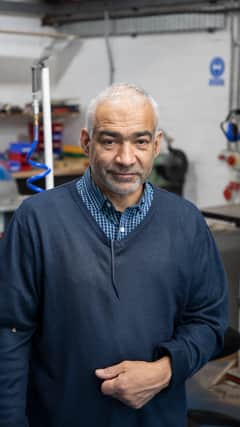Chailey engineer wins international technology award


Dr Martin Langner, resident engineer at Chailey Heritage Foundation, has been working on new ways to give young people greater autonomy and independence when using powered wheelchairs.
Martin and the team from the University of Portsmouth have won two Engineering and Technology Innovation Awards, which recognise engineers and scientists producing innovative and creative solutions that improve lives and have a potential global benefit.
There were almost 70 finalists from across the world.
Advertisement
Hide AdAdvertisement
Hide AdMartin said: “I am absolutely thrilled to have won these awards.
“I love working with the children at Chailey Heritage and I feel privileged to know them and play a part in their lives.
“I hope this award will help to continue progress to improve the lives of young people with disabilities.
“Working with the young people at Chailey Heritage has taught me so much about human determination to succeed.
Advertisement
Hide AdAdvertisement
Hide Ad“I have been humbled many times and their courage has encouraged me to come up with more innovative solutions to give them more independence.
“Our latest work with new intelligent digital systems gives young people a real sense of ownership, they choose the direction of travel rather than the technology taking over.”
Martin hopes that the recognition gained from being associated with the awards will encourage more collaboration between teams working on similar technologies.
“There are many ways that we could work with young people that will use their own particular strengths to guide their wheelchairs. From gestures and eye movements to a system that detects brain signals and feeds them directly into the machine interface – we are looking to the young people to become our co-pilots – leading us where they want to go.
“It is certainly a very challenging area but whatever is created needs to be invisible – so you always see the young person and not the machine.